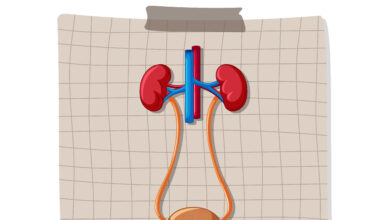Understanding Spirometry Test: Importance, Procedure, and Benefits
Spirometry is a common and essential diagnostic test that measures lung function, specifically the amount (volume) and speed (flow) of air that can be inhaled and exhaled. It is a crucial tool in diagnosing and managing respiratory conditions such as asthma, chronic obstructive pulmonary disease (COPD), and other disorders that affect breathing. This article delves into the importance of spirometry tests, the procedure involved, and the benefits they offer.
Importance of Spirometry Test
- Diagnosis of Respiratory Conditions: Spirometry helps in diagnosing various respiratory conditions by assessing lung function. It is particularly useful in identifying obstructive airway diseases like asthma and COPD.
- Monitoring Disease Progression: For patients with known respiratory conditions, spirometry is used to monitor the progression of the disease and the effectiveness of ongoing treatment.
- Pre-Surgical Assessment: Spirometry is often performed before surgery to evaluate lung function and determine any potential risks associated with anesthesia and the surgical procedure.
- Occupational Health: It is also used in occupational health to monitor lung function in workers exposed to respiratory hazards, ensuring early detection and intervention of occupational lung diseases.
Procedure of Spirometry Test
- Preparation:
- The patient is usually advised to avoid heavy meals, smoking, and vigorous exercise before the test.
- Loose clothing is recommended to allow for easy breathing.
- During the Test:
- The patient is seated comfortably, and a nose clip may be used to ensure that air does not escape through the nose.
- The patient is asked to take a deep breath and then exhale forcefully into a spirometer, a device that measures the volume and speed of air expelled from the lungs.
- The test is typically repeated several times to ensure accuracy and consistency of the results.
- Types of Measurements:
- Forced Vital Capacity (FVC): The total amount of air exhaled forcefully after taking a deep breath.
- Forced Expiratory Volume in 1 Second (FEV1): The amount of air expelled in the first second of a forceful exhalation.
- The ratio of FEV1 to FVC is calculated to assess the severity of airway obstruction.
Benefits of Spirometry Test
- Early Detection of Respiratory Conditions: Spirometry can detect lung diseases in their early stages, even before symptoms become apparent, allowing for early intervention and treatment.
- Assessment of Treatment Efficacy: By regularly monitoring lung function, doctors can evaluate how well a patient is responding to treatment and make necessary adjustments to the treatment plan.
- Improved Disease Management: Understanding the severity and progression of respiratory conditions helps in tailoring a more effective and personalized management plan for patients.
- Prevention of Complications: Early and accurate diagnosis through spirometry can help prevent complications by initiating timely and appropriate treatment.
Limitations and Considerations
- Patient Effort: The accuracy of spirometry depends on the patient’s effort and ability to follow instructions. Inconsistent effort can lead to inaccurate results.
- Contraindications: Spirometry may not be suitable for patients with certain conditions, such as recent surgeries, chest pain, or severe respiratory distress.
- Calibration and Maintenance: Proper calibration and maintenance of the spirometry equipment are essential for accurate measurements.
Conclusion
Spirometry is a vital tool in the diagnosis and management of respiratory conditions. It provides valuable insights into lung function, enabling early detection, accurate diagnosis, and effective monitoring of diseases like asthma and COPD. By understanding and utilizing spirometry, healthcare providers can significantly improve respiratory care and enhance the quality of life for patients with lung diseases. If you have symptoms of a respiratory condition or are at risk, consult your healthcare provider about whether a spirometry test is appropriate for you. Regular spirometry can play a crucial role in maintaining optimal lung health and preventing respiratory complications.


